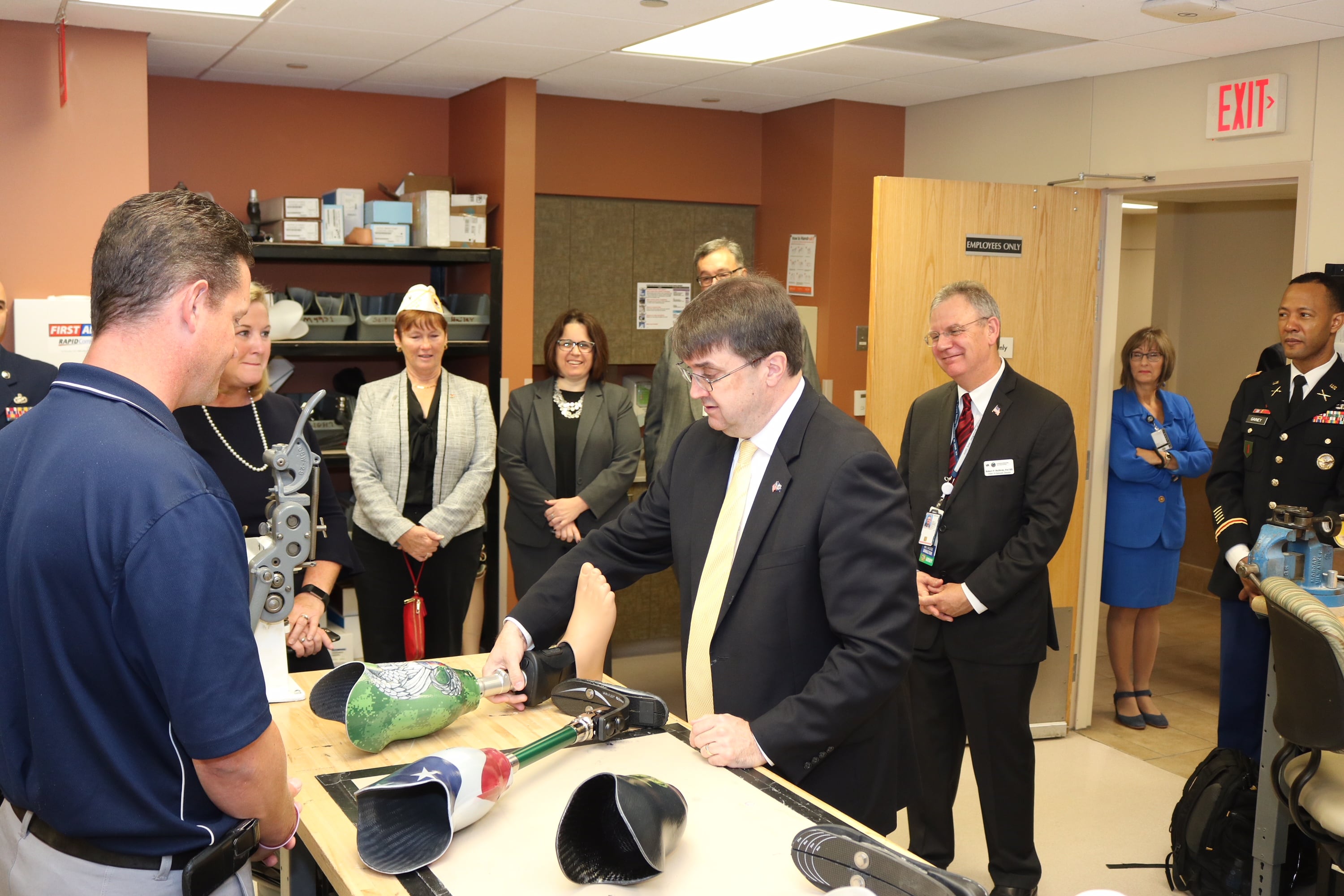In the last two years, following calls from almost 4 million veterans across the U.S., the VA Accountability and Whistleblower Protection Act was passed, the secretary of Veterans Affairs has been replaced and the Mission Act was signed to enable veterans to have choice in their health care. All happened with bipartisan support and are intended to better the lives of former service members.
But not so fast. The irony is that while the president and Congress are committed to accomplishing a new vision for veterans, the practical reality is that VA staff members have not embraced the changes. VA staff seem to be reticent to the change that affords veterans a choice in their health care. Dr. Richard Stone, head of the Veterans Health Administration, stated that 90 percent of veterans choose to stay with the VA rather than to utilize community care. However, it is not a choice when, to date, the only consistency in the responses from the VA have been, “No,” “Can’t” or “Won’t.”
RELATED

The VA must be accountable to veterans for rapid, successful treatment, achievable through the offering of more innovative, better treatment options. Inherent in that accountability is the understanding that with over 9 million veterans enrolled in the VA system, the VA’s medical professionals and social workers struggle to support 9 million health care cases. And those numbers increase every year.
For diseases that demand innovative care, such as substance use disorder, the VA should look at the programs they have already championed and continue to extend similar support to any veteran who recognizes their addiction and seeks help. Too often, a veteran’s life hangs in the balance. A VA statement of support for veteran’s health care outside of the VA can help reduce some of the very sad and all-too-common veteran suicides, overdoses, incidents of depression and rash decisions in VA parking lots.
Specifically, the Mission Act enshrines the Choice Program and broadens veterans’ access to the latest innovative health care for diseases like substance use disorder, that the VA admittedly struggles to provide. The dramatic increases in the abuse of opioids and other illegal narcotics exasperates this crisis.
Unnecessarily and unfortunately, veteran health care options outside of the VA are rarely embraced by the VA employee body or mid-level management, thereby limiting veterans’ health care choices and restricting access to the latest treatment options. This limitation stifles collaboration, hinders successful outcomes for veterans, and leads to increased health care costs.
Experiencing 20 suicides daily, the veteran community suffers from depression, substance use and a lack of one-on-one interaction with medical professionals and social workers to assist with these challenges. The health care choices enabled by the Mission Act include not simply an outsourcing of medical services, but also outsourcing ongoing support and treatment provided by VA-approved, private sector entities.
In a statement, the secretary of the VA said, “Most Americans can already choose the health care providers that they trust, and President Trump promised that Veterans would be able to do the same.” Secretary Robert Wilkie’s comments are consistent with the intent of the Mission Act and the Choice Program. However, veterans who request community care are routinely denied their right to “choice” regarding their health care.
Simply put, the VA’s substance use disorder treatment protocol and its’ veteran patients would benefit by engaging community providers, as was intended by the Mission Act and Choice Program. Yet, too many VA case managers are staunchly opposed to any treatment program provided by external entities, despite VA limitations. In fact, if the VA provides a specific form of health care, the prevailing VA guidance seems to be that it should ONLY be provided directly from the VA without considering a veteran’s right to choose a health care option.
Americans who are competent enough to serve our country are certainly competent enough to make their own health care choices.
RELATED

Private medical companies caring to support veterans are reaching out to VA headquarters, to the offices of community care, to VA medical providers, to local Veteran Integrated Service Networks and Community Based Outpatient Clinics sharing their results and offering services, with little success. The incredibly successful results of private, innovative companies, coupled with the stated intent of the Choice Program and the Mission Act, compel a requirement for the VA to at least consider using these companies to help make veterans healthy.
The message from the VA should be about helping our veterans reach recovery using all available resources, rather than “No,” “Can’t” or “Won’t.”
Retired Army Lt. Col. Carl S. Ey is president and CEO of Mammoth Global Partners Inc., a media consulting organization supporting businesses and charitable organizations working with veterans.





